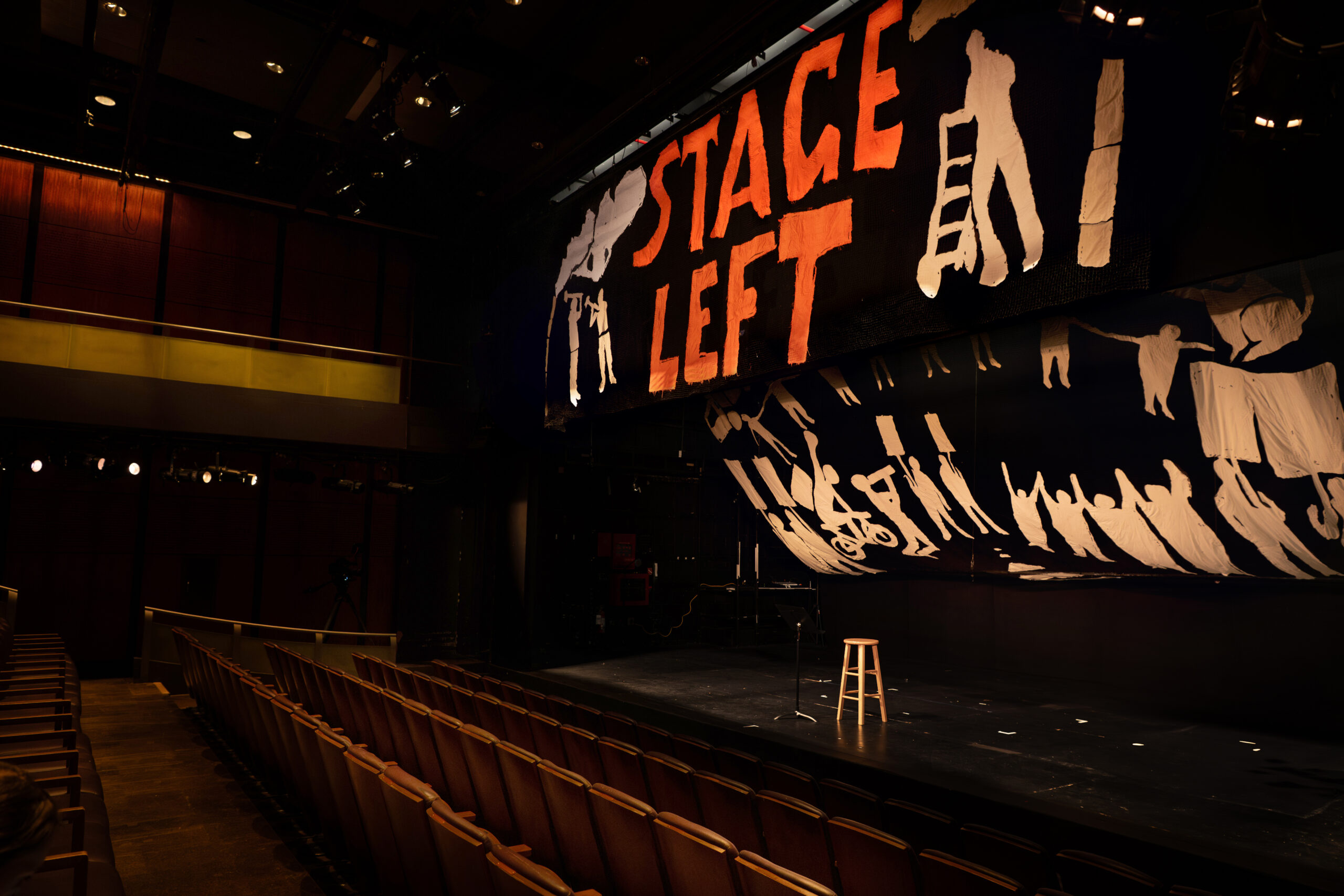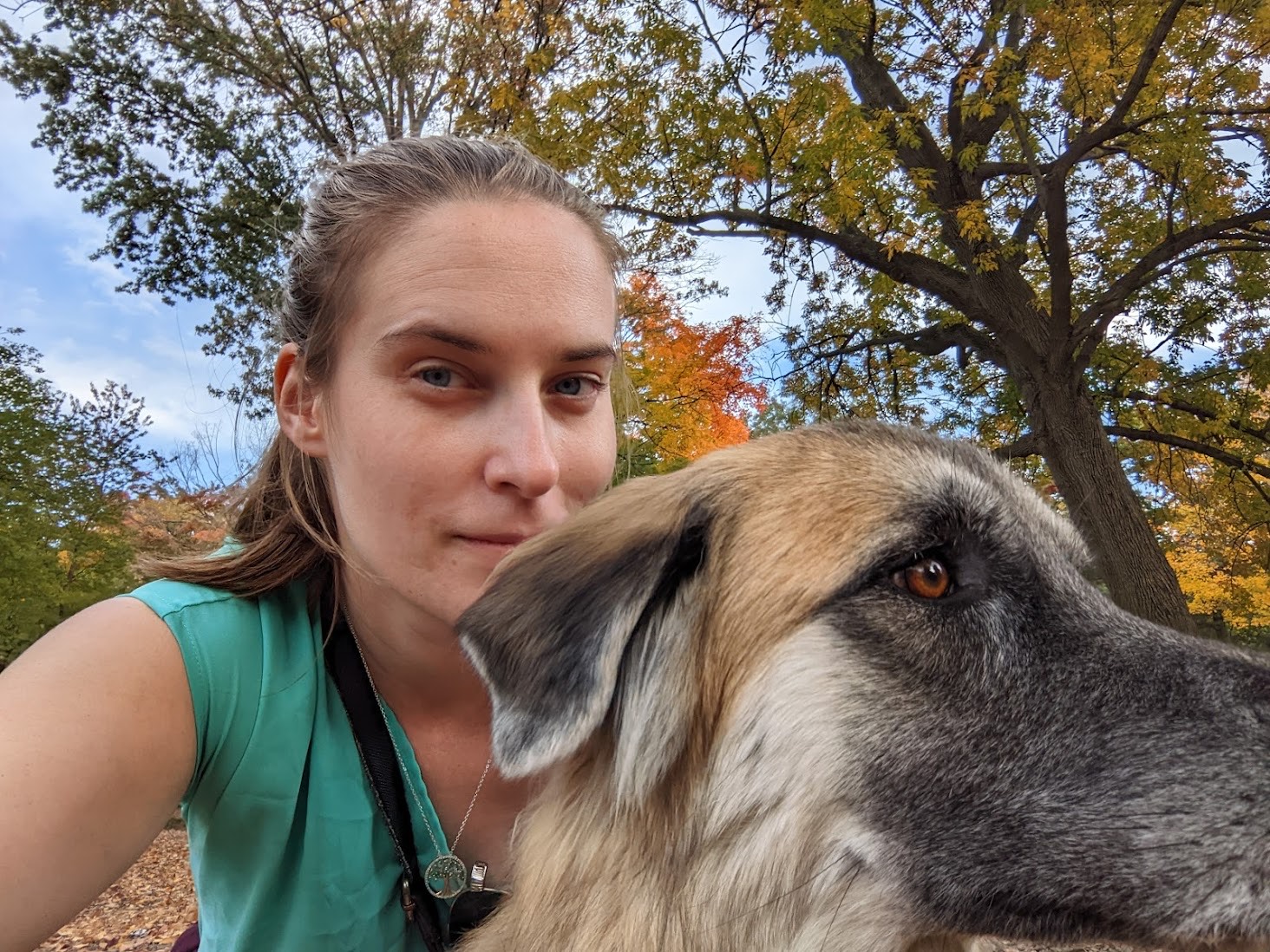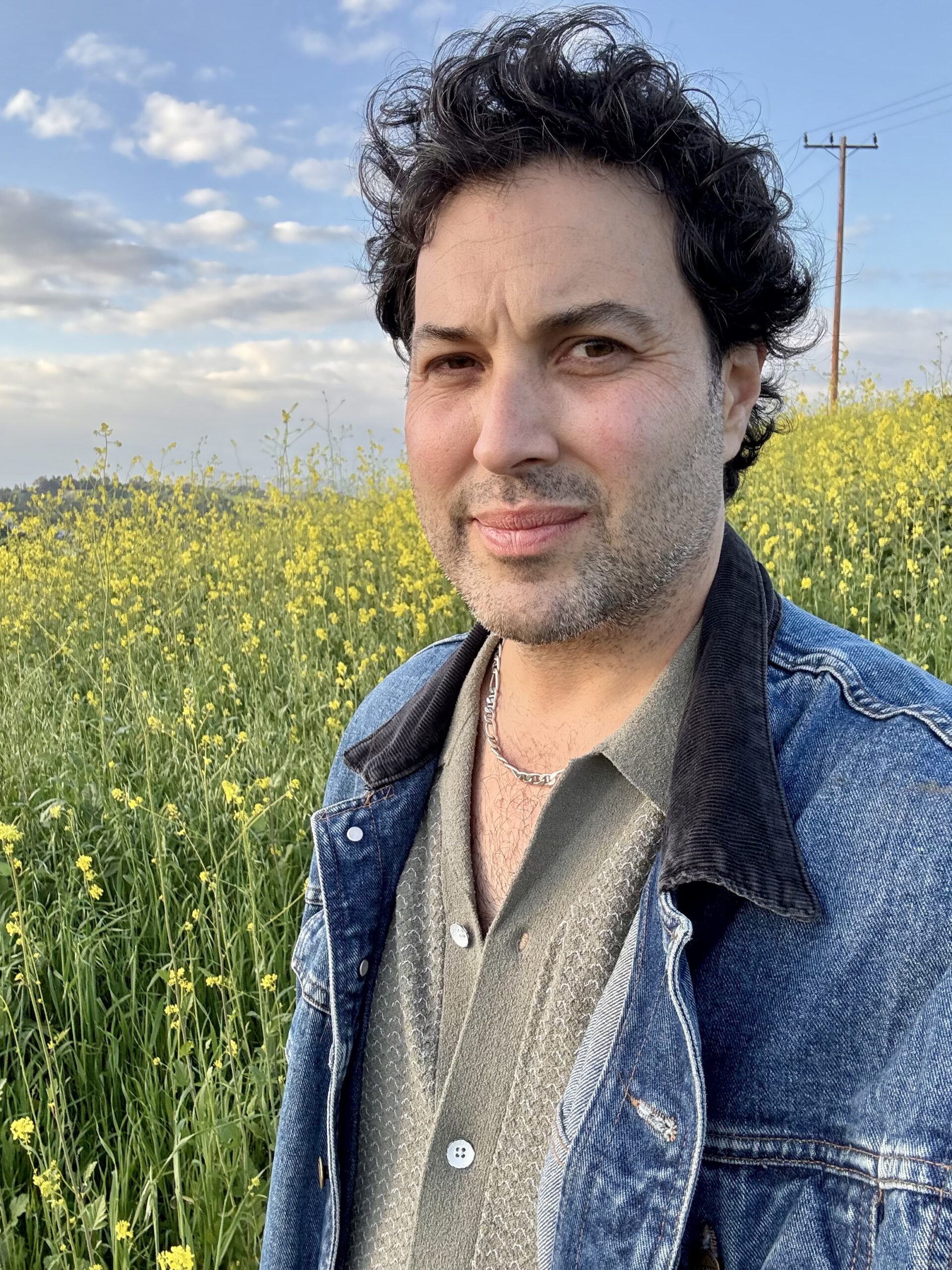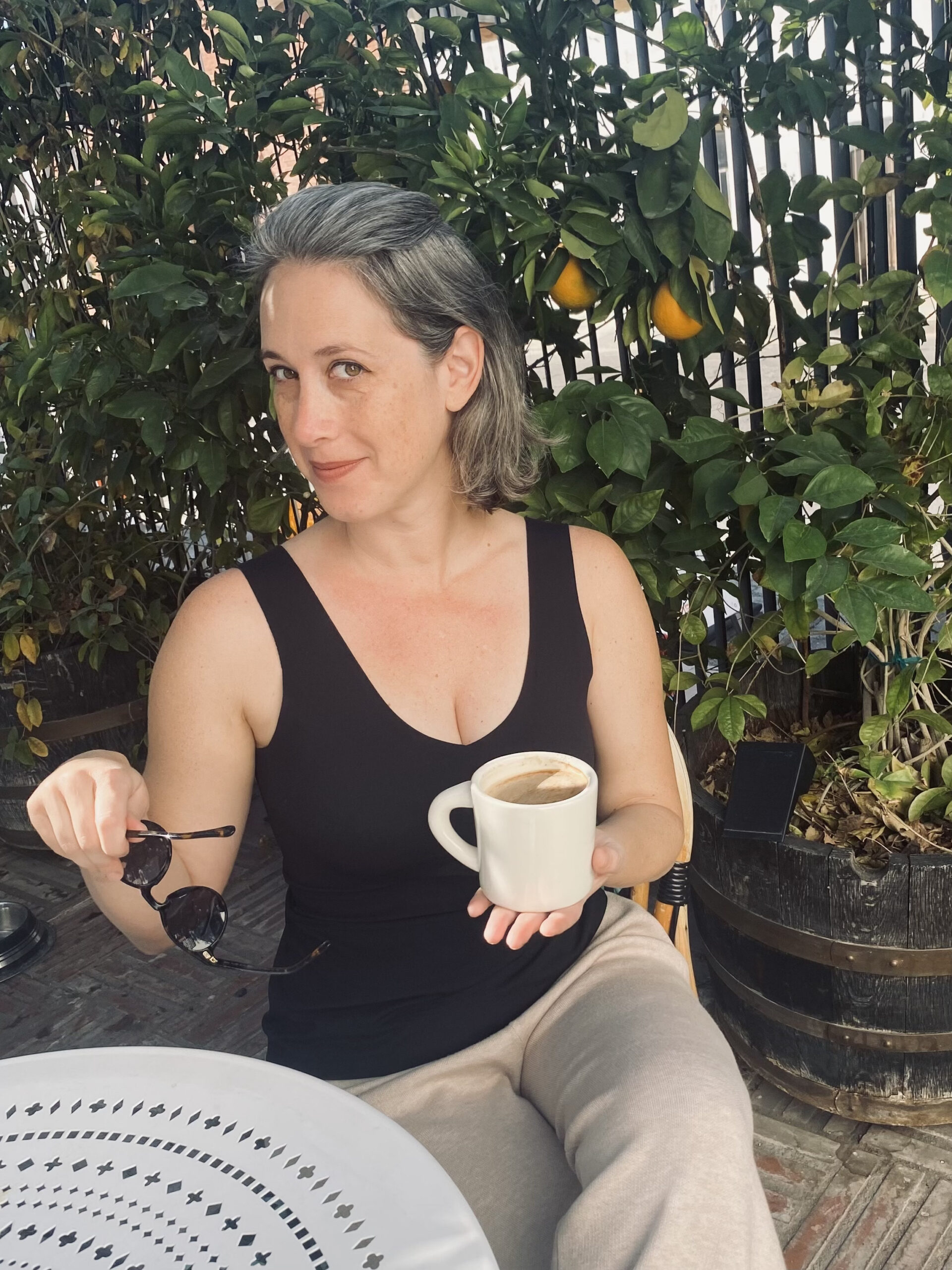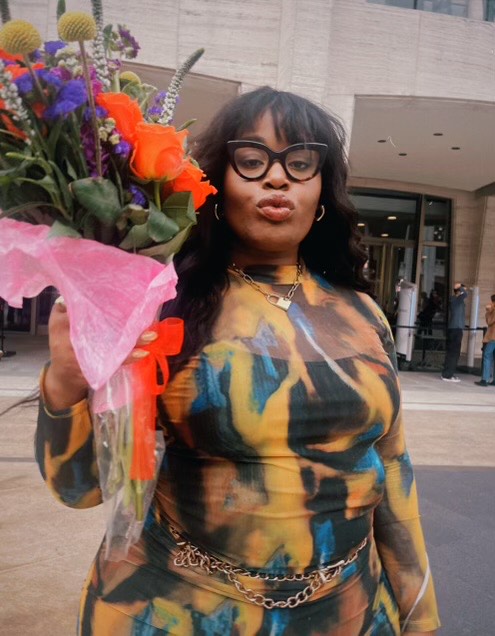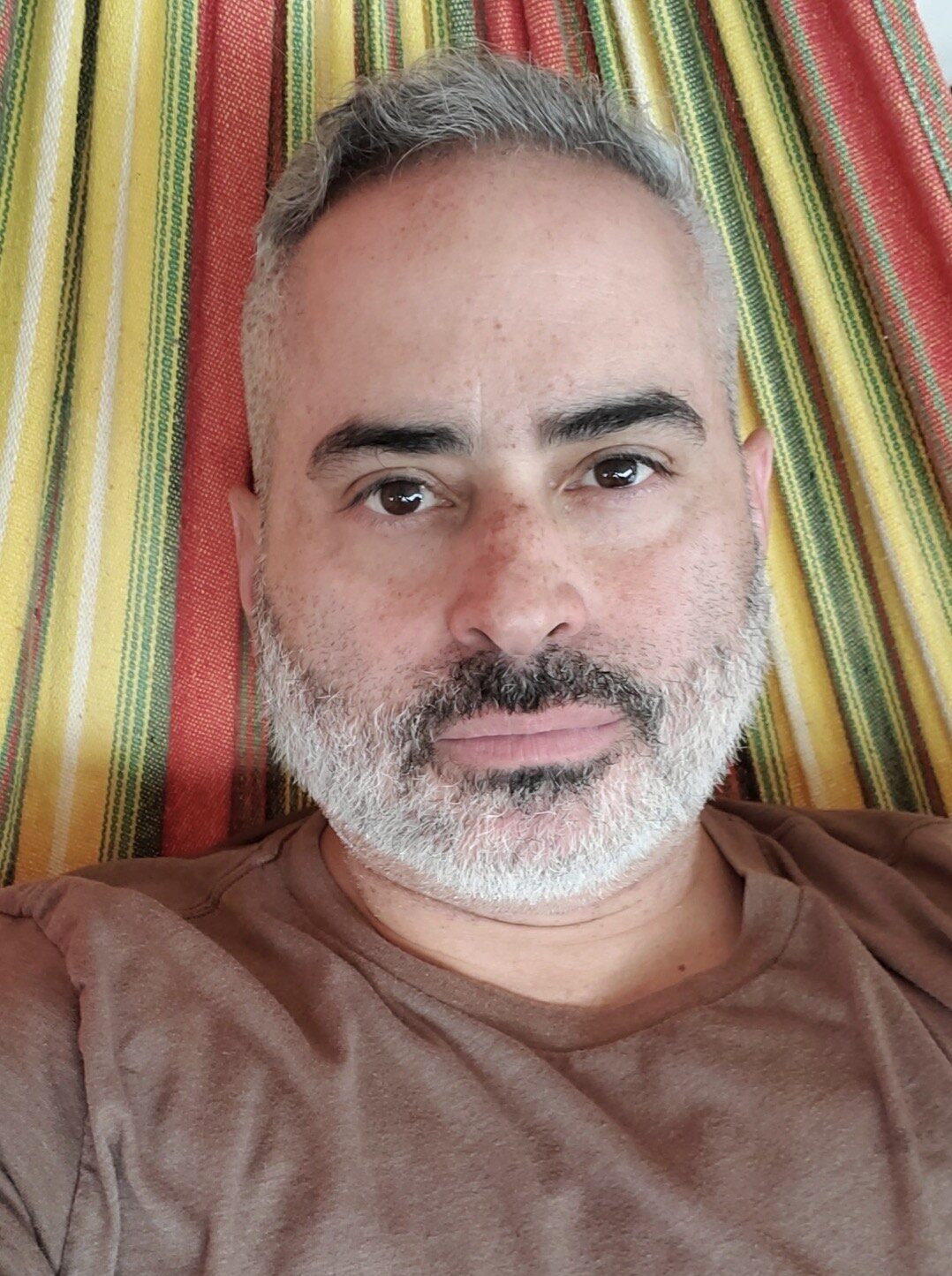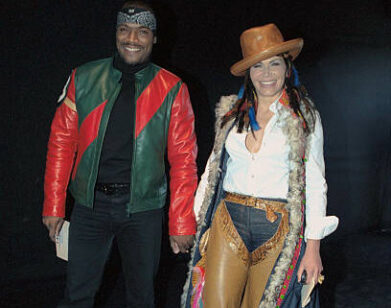PLAYWRIGHTS
Behind the Scenes of Stage Left, a New Theater Festival By and For the Working Class
Notes app brainstorms and subway scrawlings, not to mention years of research and hard work—that’s what it takes for six emerging playwrights to get their latest pieces over the finish line. And at this month’s first ever Stage Left festival, the brainchild of Working Theater and Broadway Advocacy Coalition, they’ll stage readings of these works for the very first time. Held at Playwright Horizons, Stage Left is homing in on storytelling with a social justice bent, with all six plays—La Dureza, by Ed Cardona Jr.; Foot Wears House, by Laura Neill; Hit Machine, by Jon Caren, The Garbologists, by Lindsay Joelle; Date of Release, by Andrea Ambam; and The Hero U Took, by Pedro Rosario—developed in partnership with advocacy coalitions fighting for racial and economic justice. It’s a fitting undertaking for Working Theater, which has endeavored for 40 years to make theater in New York more accessible to—and reflective of—the everyman. To celebrate Stage Left’s debut, we asked each of its six contributing playwrights to take us inside their process and forecast the future of live theater in the city. “Of course, New York will have Broadway’s awe-inspiring musical spectacles,” says Laura Neill. “But we also need to keep building a grassroots, sustainable theatre that builds from and inspires both imagination and social change.”
———
LAURA NEILL
FOOT WEARS HOUSE
Dream casting for a lead role, dead or alive? I mean, I’m pretty psyched about the actors who are doing this reading!
Where do you write? Ideally, on a weekend? On my couch with my giant dog. Often, on a weekday? On the subway en route to my broke-playwright day job. I discovered my commute is the perfect amount of time to write a scene. I get on in Flatbush and if I can get a seat, I can polish off a draft of a new scene by the time I get to my job by Central Park. Occasionally a kind stranger will see me standing, scribbling and almost forgetting to grab hold of something before the train stops at a station, and offer me their seat so I can write without falling over. (If you are that stranger… THANK YOU for saving my chronically ill body from more pain.)
What was your first theatrical experience? I was Tweedledum in the Alice in Wonderland musical when I was ten. This had literally no impact on my soul or artistic leanings. I came to playwriting much later after an angsty teenage detour through fiction, when I realized if I wrote plays I could tell stories AND hang out with friends.
What play (that you’ve read or seen live) has shaped you the most? I saw Water by the Spoonful by Quiara Alegria Hudes in a low-budget black-box production and it changed what I thought was possible onstage. And seeing David Henry Hwang read scenes from M. Butterfly made me realize plays can be both funny and important.
What does your notes app look like? Mostly empty—I carry hard-copy notebooks so I can scribble on the subway.
What’s one thing you always bring to rehearsals? Snacks to share!
What’s the most unexpected thing an actor has done to one of your lines? Proposed to me with it. My partner (playwright Jaymes Sanchez) used words I’d written to ask me if we could spend our lives together.
Dream space to have one of your plays produced? Playwrights Horizons. Yeah, where this reading is gonna be. I’m starry-eyed.
What does the future of New York theater look like? The future of New York theater has to be equal and sustainable wages for artists & admin alike. Theatre has a huge class gap, and so many working-class artists leave the industry because it’s not sustainable. We need to talk about paying artists living wages. As a point of reference, see Ife Olujobi’s article in The Dramatist, “$5000”. The creative future of New York theater is black-box plays that use genuine theatre magic instead of naturalistic sets; plays that creatively continue conversations about real issues; plays that offer cheap tickets so people can actually go see them. Of course, New York will have Broadway’s awe-inspiring musical spectacles, but we also need to keep building a grassroots, sustainable theatre that builds from and inspires both imagination and social change.
Where should someone who doesn’t normally see a lot of theater start? If you’re in New York, go see a free play reading at one of the city’s new work development houses: Playwrights’ Realm, Page 73, Clubbed Thumb, Working Theater (ahem), the list goes on. Readings are often free and a great way to get in on the ground floor of a new story without breaking the bank. Then, log into CulturePass through the library and see if any Broadway or Off-Broadway houses have free ticket offers there. That’s a great way to see a show that is spectacular—namely, has a high production budget—so you can taste the other end of the theater spectrum, again without breaking the bank. And if you’re not in New York—check in with the new-work theaters in your city and ask about free play readings and discounted tickets!
How did your personal experience with the REI union fight influence the creation of this play? Not gonna lie, some of the most wicked humor in this play found the page right after I got home from working a long retail shift. And when I sobbed in anger at work when they cut our pay and blamed us for it? That rage went in the script. When management ignored natural and unnatural disasters (flooding, wildfire smoke, gas leaks), that feeling of betrayal, that bewilderment, went in the play. It wasn’t a literal plot that I took from my experience being a part of the contract action team with the REI union. It was the emotional truth of it. I wove some imaginary structural webs around and out of that emotional core, and I had fun doing it. This play is a comedy on purpose, not because union-busting is funny (it sucks) but because there’s joy in finding ways to tell the story, there’s joy in that catharsis. And my hope is that audience members who’ve not yet worked retail will identify with the characters, and that they’ll laugh in solidarity rather than alienation, because everyone knows how it feels to be given way less than you deserve, and told it’s your fault. And maybe the laughter of the play both helps people release some of their own pain, and helps them realize that workers’ rights are really fucking important.
How did you approach the task of incorporating actors who took part in the original union fight against REI into the production? And why was that degree of realism necessary? Having my union siblings read parts in the play’s first reading wasn’t meant to be realism–it was meant to be recognition and catharsis. The people at the heart of the REI Union Soho movement were integral to the play’s development, both at the public Hudson Park Library reading and at our previous closed reading at the RWDSU offices. This play isn’t a documentary–union member Cullen Robbins is actually making one of those about the union fight!–but emotionally, it’s by and for people who believe in each other enough to fight for better working conditions. The script would never have existed without my time fighting alongside REI Union Soho. So I wanted to make sure that the script I was putting forward felt emotionally accurate to the people who were and are shedding blood, sweat, and tears working to make that store a better place. Plus, is there really any better feeling than telling a story of resistance against your shitty bosses–I’m sorry, I mean fictional characters who are in no way inspired by my shitty former bosses–and having the whole audience give you a standing ovation? My coworkers mostly agreed to be in that reading, not because they wanted to become actors, but because they thought it would be fun. I hope it was.
For this more formal reading, where the actors will rehearse and I’ll work on the script, we’re cast with performers from Actors Equity, and I’m excited to learn from union siblings across organizations & disciplines. Carlos (playing Davy) is both Equity and former REI Union Soho, so we get to keep a little of that primary-source catharsis in the room as well as meeting incredible new voices bringing their skill to this story.
———
JON CAREN
HIT MACHINE
Dream casting for a lead role, dead or alive? Peter Sellers.
Where do you write? The Center for Fiction, or on beds. Cross-legged with my back to the headboard.
What was your first theatrical experience? I used to act in plays. I’m the guy who quit football to try ballet. Though I was not particularly good at it.
What play (that you’ve read or seen live) has shaped you the most? When I was 18, I saw Death of a Salesman on Broadway with my dad. I never looked at him the same way after that.
What does your notes app look like? There are 177 open notes on my iPhone. I just glanced at one. It says, “Accepting the world for what it IS vs. striving for what it can be.”
What’s one thing you always bring to rehearsals? Deodorant.
What’s the most unexpected thing an actor has done to one of your lines? Well, this isn’t about a line, but the title. I overheard an actor saying something snarky about my play, and I ended up retitling it exactly what he said.
Dream space to have one of your plays produced? The National.
What does the future of New York theater look like? Scrappy downtown theater colliding with A24.
Where should someone who doesn’t normally see a lot of theater start? I host a monthly cold reading series at Judson Church on Wednesdays. In a beautiful congregation hall. It’s free, and there’s a shared community meal. You can’t beat that.
What role does the original soundtrack by Ben Harper play in the narrative of the play? Ben wrote music from the character’s point of view. His sound is so specific and singular that it inspired me to reimagine the character based on his sound. The end result is that his music and lyrics have profoundly impacted and reshaped the text.
Hit Machine focuses on the relationship between two brothers at odds with one another. What drew you to the themes of brotherhood and class tension? I’ve always been fascinated by stories about relationships involving extreme class divisions. Despite our massive inequity, we’re a surprisingly cooperative species, so I look for the common ground in the hope of bridging that gap on the stage.
What, in your opinion, is the most iconic play about sibling rivalry? True West cuts deep. David Henry Hwang once told me that he builds his plays using the structure of a play he admires. I blatantly used True West for Hit Machine.
———
LINDSAY JOELLE
THE GARBOLOGISTS
Dream casting for a lead role, dead or alive? Alive, preferably.
Where do you write? I do most of my writing on my laptop, usually in my home office in Tucson. Sometimes a monologue or bit of dialogue will arrive while I’m in transit, and I’ll pull over to the side of the road or talk-to-text into my phone at a stoplight to get it down.
What was your first theatrical experience? When I was in first grade, my parents took a trip to NYC and brought me back The Complete Phantom of The Opera, a heavy book containing the entire libretto and production photos. I remember sitting on the couch, turning the pages as my dad told me the story, and I fell in love with the music and the production process from idea to design to staged spectacle.
What play (that you’ve read or seen live) has shaped you the most? My special mention goes to Sarah Ruhl’s Eurydice, which taught this musical theater girl what a play is and what a stage direction can be: The Father creates a room out of string for Eurydice. He makes four walls and a door out of string. Time passes. It takes time to build a room out of string. Reading that stage direction exploded my brain to understand that as playwrights, we’re creating two different experiences: First, we want the reader to imagine the possibilities and poetic soul of the play (and sometimes to decide whether their theater will produce the play!) Second, we want to create a blueprint to invite an artistic team to design and manifest the world of the play. In my scripts, I like planting a few stage direction easter-eggs that only folks reading the play will ever see.
What does your notes app look like? I don’t use the notes app but I do draft myself emails of words I find interesting, quotes, questions, and details that add authenticity. Here’s a peak at my most recent email draft for a new play about a female soldier at Guantanamo:
First duty
Chow hall
Zero day
To know the language of the enemy
What languages does Patty speak?
Need a monologue exploring duty, the line of soldiers the uniform represents
Legal black hole
Razor wire cells open to the elements
Hitting an iguana = ten thousand $ fine
Plays come to me in snippets like this and then I stitch them together.
What’s one thing you always bring to rehearsals? A hoodie. Rehearsal rooms are always too cold.
What’s the most unexpected thing an actor has done to one of your lines? Steven Rishard, the brilliant comedic actor who originated the role of Danny in The Garbologists had a line (“Christ on a bicycle!”) that inspired him to fling his prop into the air. The prop happened to be a giant purple dildo with a suction cup on the end, and when he tossed it up, it happened to land perfectly erect on the suction cup and *boing* back and forth. Before a performance that includes fight sequences, actors have “Fight Call” to rehearse the choreography to make sure it goes smoothly and safely in performance. So before every night’s show in Philadelphia, Steven would hold “Dildo Fight Call” to practice tossing the prop up so it would land on the suction cup and get the laugh. We got it right about 40% of the time.
Dream space to have one of your plays produced? NYC. I write New York plays set in New York that have had regional success around the country. It’s time someone brought one of my New York plays home!
What does the future of New York theater look like? I think we’re all looking for experiences that feel innovative and alive. I want to be smacked in the face by the sound waves created by a live orchestra. Be moved by an actor who discovers new resonance in a line they’ve said a hundred times before, but tonight hit them unexpectedly. The streamers are pumping out excellent stories one can watch and rewatch in their pajamas; to remain vital, the future of theater leans into and celebrates work that feels visceral, communal, hopeful, and can only be experienced live.
Where should someone who doesn’t normally see a lot of theater start? Start by supporting your local theaters. Go to a play and cheer for someone you know. Or look at the theater section of your local paper to see what’s happening in your neighborhood and take a chance on an evening out. The more you see, the more you’ll learn what you like.
What drew you to write about sanitation work and invisible labor? My interest in sanitation probably started with “mongo.” (Mongo. Verb: To Scavenge. Noun: Junk.) Living in NYC for 21 years, I’ve mongoed some incredible mongo from the curb. I like the thrill of rescuing treasure from the trash. I’m also interested in the rituals, routines, and on-the-job jargon of insular communities that we don’t often hear from. So when I met an off-duty sanitation worker at a friend’s cabin, I was eager to hear stories from his daily trash route. Next, I started talking to sanitation workers across the country, looking for commonalities in their experiences and asking what they wanted people to know most about their jobs.
Did this research change the way you move through the city? It certainly changed my awareness of what I was throwing out and how. I won’t put a knife in a plastic garbage bag without wrapping the blade in cardboard, or if I’m throwing away broken glass, I’ll put it in another container that will protect someone grabbing the bag from accidentally getting sliced. During my research, I was struck by how many sanitation workers said that when they put on the uniform, they feel like they become invisible. I’m now much more aware of how often I see sanitation workers during my day, and I try to give them a “thank you for your service” nod.
———
ANDREA AMBAM
DATE OF RELEASE
Dream casting for a lead role, dead or alive? I’ve got a play called Twelve Angry Black Women and every day I imagine the endless list of actors who would eat up! Imagine Queen Latifah opposite Michaela Coel opposite Regina King… you catch my drift. An epic and diverse universe of Black femmes on stage is a dream to me.
Where do you write? Mostly, in my studio apartment. Plus, coffee shops, museums, libraries/book stores, friend’s couches, and even the park when I’m going stir crazy.
What was your first theatrical experience? Definitely in the church. I grew up catholic and about once a year, usually around Halloween, we’d go through this thing called Judgement House. It’s an intense, immersive experience acted out by folks in the church. We, the audience, travel with a person through their death to their Judgement Day, and to their final destination of heaven or hell. Somewhere between ages 7 to 10, I distinctly remember Judgement House; particularly watching the reenactment of an otherwise “good woman” burning in hell because she didn’t declare Jesus Christ as her lord and savior while living. At the end of the experience, church members are waiting to talk to you about accepting Jesus. I doubt I counted it as theatre then, but I definitely recognize it as theatre now. Religion wouldn’t be so popular without a knack for storytelling and a flare for the dramatics!
What play (that you’ve read or seen live) has shaped you the most? Catarina and The Beauty of Killing Fascists by Tiago Rodrigues. The play is as thrilling and hyper-theatrical as it sounds, and marries many of my favorite things– poetics, politics, and legacy. The play pushes against the boundaries of theatre, and had me ready to jump out of my seat both times I’ve gotten to experience it. I first saw it at an international theatre festival in Montreal alongside my New York Theatre Workshop 2050 cohort, made up of fellow emergent playwrights and directors. We talked heatedly for hours after the play, and just mentioning it will drum up paragraphs of debate and critical analysis. Catarina and The Beauty of Killing Fascists is in Portuguese (we watched with subtitles) and I haven’t been able to read a translation yet, but it’s the kind of theatrical experience I aspire to create.
What does your notes app look like? Mess! It’s not unlike the inner workings of my brain – intrusive thoughts, new play ideas, lines or phrases from out in the world that kicked something up in me, grocery lists, first drafts of vulnerable texts, and many, many half-finished poems.
What’s one thing you always bring to rehearsals? I’m a bit of a rehearsal maximalist. I’d carry a whole cart of things with me if I could. In addition to the books that are grounding me in the world of the play, I always bring some kind of spiritual reinforcement. Before rehearsal, I’ll pull a card (or several) from the CHANI Affirmation “Deck of Plenty” or adrienne marie brown’s “Lineages of Changes” tarot deck and then carry it with me throughout the day/process.
What’s the most unexpected thing an actor has done to one of your lines? Not necessarily what they’ve done to them (because they do all types of things!), but I’m most surprised by how actors have interpreted the characters I bring to them. I’ve worked on plays when they were very much still “concepts of a plan”, and actors will color in and outside of the lines in a way that has brought fascinating discoveries to new work.
Dream space to have one of your plays produced? All over Africa! Especially in Cameroon where my family is from.
What does the future of New York theater look like? More new plays or old plays that never got produced and less revivals. Plays taking place in unexpecting spaces to remind us that theatre is everywhere. We need new producing models that reject scarcity and embrace cultural responsivity, so that audience engagement can become more than “getting butts in seats.” I’m hoping we’ll see another rise in artist troupes and collectives.
Where should someone who doesn’t normally see a lot of theater start? Life is broader than Broadway. Check out the seasons at regional and off-Broadway theatres. Even if it’s not in the season, I can almost guarantee there is a play/musical/etc at the intersection of your interests whether that be sports, climate, fashion, gaming– the list goes on and on! There is theatre about everything. And if you can’t see it, read it! Theatre is also literature and (the gag is) sometimes your imagination is better than a production. How do you approach writing a play that navigates both large, prescient systemic issues and the individual’s sense of a “healing journey”? Each day, directly or indirectly, whether we recognize it or not, our personal lives are being affected by systemic issues. Living in New York City, it doesn’t take long to see state-sanctioned unwellness everywhere. Systems like white supremacy, mass incarceration, and hypercapitalism are not conducive to our personal or collective well-being.
I often write characters trying to break free from within oppressive realities. My characters are relentlessly searching for alternatives, and testing boundaries placed by the oppressor. I believe that actions we take to reclaim our bodies are a part of the resistance (Shoutout to Dr. Resmaa Menakem, founder of Somatic Abolitionism!). The framework of Somatic Abolitionism helped me to make creative connections between the two settings in Date Of Release– a trauma-informed wellness studio in Brooklyn and Bedford Hills Correctional Facility (New York’s only maximum-security prison for women).
This play was inspired by conversations with the Releasing Aging People in Prison Campaign. How does that real-world connection influence this piece? The work of RAPP is woven all throughout this piece! I recorded all of my conversations with RAPP and in certain iterations of the piece, you actually hear the audio directly from community leaders in the organization. For example, I spoke with Jamel Bellamy (NYC regional community organizer at RAPP) only five months after he had just served almost 38 years in prison. Our conversation was cheery, somber, and deeply inspiring all at once. Jamel shared with me the words of activist Eddie Ellis “If we don’t push, nothing moves.” I love the way that quote connects to social justice and activism, but also to our bodies. Liberation and healing are not passive acts; Jamel’s commitment to freedom for all, even after his own release, became the creative impetus for Date of Release.
I also spoke with Roslyn Smith (Brooklyn community leader at RAPP) and our conversation really focused on the unique experience of incarcerated women and femmes. Periods, pregnancies, hysterectomies, and all types of body-altering diagnoses and procedures persist for women incarcerated. She told me a story about women inside giving each other foot massages and manicures, and shared that she now has standing spa days with a group of formerly incarcerated women. I couldn’t get those images of intimate collective care out of my head. Roslyn empowered me to make sure sisters are not left behind in the conversation on decarceration.
———
PEDRO “JUNGO PETE ROC” ROSARIO
THE HERO U TOOK
Dream cast for the lead role, dead or alive? Casting Robert DeNiro in the role of John McKenzie would be a dream come true.
Where do u write? I do my writing in J2-221 cell here at Green Haven Correctional Facility.
What was ur first theatrical experience? My first theatrical experience came in 2018, after joining RTA (Rehabilitation Through the Arts) here at Green Haven Correctional Facility. The play was called “Cafe of the Heart”. I was the lead writer, starred in the lead role as Boxed-In Joe, and penned a song called “Home” that was performed an incredibly talented castmate. The experience was exhilarating, transformative, and fun.
What play (that u have read or seen live) shaped u the most? The play that I’ve read or seen that shared me the most? Wow. Without question it’s August Wilson’s Fences. I read the script and cried during Rose’s monologue. When I saw Viola Davis performance in the movie, I predicted she’d win an Oscar, which she did. (By the way, August Wilson and Miguel Pinero are my favorite playwrights)
What does ur notes app look like? Due to my lengthy incarceration (33 years, since the age of 18), I am not familiar with a notes app. I write my notes in a notebook. Most times on scrap paper, which I later discard.
What’s the one thing u always bring to rehearsal? During rehearsal for “Cafe of the Heart”, I use to bring a closeup photo (taken from New York Times newspaper) of August Wilson.
What’s the most unexpected thing an actor has done to one of ur lines? The only unexpected thing occurred at rehearsal in Cafe of the Heart. While in the role of Boxed-In Joe, (who’s an emotionally disturbed homeless man) I rattled a collection can at passersby’s, chanting: “Passerby, passerby, care to spare change. Drop nickels and dimes to absolve your crime; the cost is humane. I know I don’t see eye to due cause lie at ur feet like stray Great Dane, but there’s a fine line between you and I that crosses, when our paths the same.” One of the passerbys, whom I’m unaware is my son, drops a coin in the collection can. I then looked at the can and gave a loud gulp, sounding like Scooby-Doo, which caused the director and cast to laugh. Because of their reaction, the director suggested we keep my improvisation, which later caused the audience to laugh.
Dream space to have one of ur plays produced? The August Wilson Theater.
What does the future of New York Theater look like? I believe in the future we’ll see Broadway marquees headlining the names of Black and Brown playwrights. We’ll hear untold tales told in a provocative but entertaining manner and performed by relatable characters. I also see dramatic poetic dialogues and Hip-Hop musicals. Not solely in the “Hamilton” style, but in a more gritty, unapologetic manner. The ultimate truism. I strongly believe there’s an untapped audience Broadway ignores, which can dramatically increase theatregoers.
Where should someone who doesn’t normally see a lot of theater start? I believe folks should see Off-Broadway shows, including performances at Lehman College in the Bronx, where I hear there’s an incredible wealth of creative and eclectic talent, telling diverse stories.
What was it like researching the true story of incarceration behind this story? Did you conduct interviews? Unfortunately, I have over three decades of research to tell compelling stories of resilience and redemption. (Note: I am by a team of pro-bono attorneys and at the gulp of being exonerated).
How do you hope this play will contribute to the conversation about life sentences? Because society only sees the stereotypes of incarcerated individuals depicted in the media, I believe it’s my solemn responsibility to change the narrative. We are fallible human beings, but also regretful, resilient, and redeemable men and women. I hope I succeeded in having The Hero U Took expose the flaws and hypocrisy embedded in our Parole System. Particularly, how Parole Commissioners use “The Nature of the Crime” as a blanket excuse to deny parole to countless deserving men and women who are made to languish in prison beyond a lifetime, when they can be contributing members of society. Please know. My goal in writing “The Hero U Took” is not to make us heroes, but to humanize us. And by doing so, we become heroes. It doesn’t take a life sentence for society to see that our sentence has life.
———
ED. CARDONA JR.
LA DUREZA
Dream casting for a lead role, dead or alive? I don’t really have a dream casting at this point, I’m sure it will come as I continue to develop the piece and the character.
Where do you write? It all depends on the mood. If I’m looking for a quiet space that I can control I’ll write at home, if I’m more in the mood for some noise and movement, a coffee shop, sometimes my local watering hole, or from a hammock in the park.
What was your first theatrical experience? A production of Hair my freshman year at Western Connecticut State University.
What play (that you’ve read or seen live) has shaped you the most? Fences by August Wilson and Short Eyes by Miguel Pinero.
What does your notes app look like? Here are my headings and the first line for each, the rest I’m going to bring to the grave, lol:
Belmont = 6. Groceries = After Shave. Play Ideas = I AM. Pick up dry Cleaning. Bills/Budget = Credit Cards. PR WiFi = 4. TV Pilots = Apricot Sunday. Film Ideas = Stay Golden. Full Body Workout = Day One. Reading List = She Kills Monsters
What’s one thing you always bring to rehearsals? Moleskine and pen.
What’s the most unexpected thing an actor has done to one of your lines? Decide not to say it.
Dream space to have one of your plays produced? The Woolly Mammoth, I’ve always loved that space. Hartford Stage, it would be a bit of a homecoming.
What does the future of New York theater look like? Even more broke.
Where should someone who doesn’t normally see a lot of theater start? Working Theater and Intar Theater.
What inspired you to center a one-man-show around the struggles of a delivery cyclist in New York City? I was approached with the idea and commissioned by the Working Theater, so I can’t take credit for the initial idea. The Working Theater and its community outreach work with Los Deliveristas Unidos, I believe gave birth to the idea, and I was blessed to be brought on board. Once brought on board, I worked with Colm, Working Theater’s Artistic Director who had the framework of an idea and we went from there.
What are some of the challenges of writing for a bilingual performance? Once you understand who your primary audience will be, the challenges are limited for me in that regard. In this case, my approach to writing the play was to focus on an English-speaking audience, shaping the story and its main through line accordingly. The limited Spanish in the play I’ve used to add color and insight into the lead character. With that said, it is also my goal to have the play fully translated and performed in Spanish or presented with subtitles.
How did you go about conducting research to portray the life of a delivery worker? I did some initial online research of news articles and blogs, a couple of formal interviews with delivery drivers, some cold walk-up interviews, and finally some observations at local restaurant pick-up counters and sidewalks.
———

